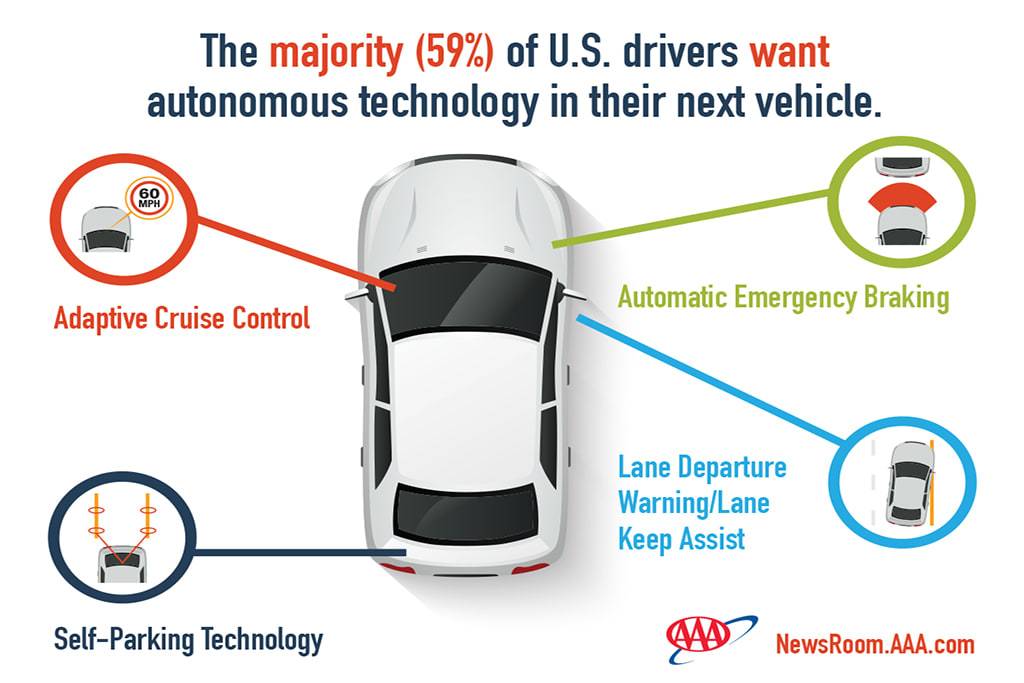Still Scared of Self-Driving Cars? You're Not Alone

By Matt Schmitz
March 8, 2017
Share

CARS.COM — Motorists continue to be hesitant for a future in which their perception of control over their fate in a moving car is obsolete. But if you’re an older American woman? Chances are, you’re far from willing to let Siri take the wheel. A new national survey shows that skepticism remains highest among female members of the baby boomer generation.
According to the study by travel-services provider AAA, despite the promise of self-driving cars eliminating the biggest common factor in the U.S.’ 35,000 annual traffic deaths — human error — three-quarters of Americans still report fearing an autonomous future. Only 10 percent say they’d feel safer ceding control to a robot.
More than half of U.S. drivers overall say they’d feel less safe sharing the road with an autonomous vehicle. Fifty-eight percent of women are more likely to feel less safe compared with 49 percent of men, while 60 percent of baby boomers fear being driven by a computer compared with 56 percent of Gen Xers and 41 percent of millennials.
These figures confirm the findings of previous studies reaching a similar conclusion that Americans are self-driving skeptics. As fast as the technology has moved in the past year — manifesting itself in all sorts of partially autonomous features, from auto emergency braking to self-parking capabilities — public perception of fully autonomous autos has not changed much in general. A 2016 AAA survey also determined that 75 percent of Americans were averse to the technology.
AAA expressed empathy for the apprehension, noting wide variation in previous testing of semi-autonomous features like adaptive cruise control and lane keep assist. The inconsistency is significant given that 81 percent of survey respondents say self-driving technology should work “similarly and consistently” across all automakers. Meanwhile, high-profile collisions by a Google test car and the death of a driver using Tesla’s Autopilot semi-autonomous-driving feature only reinforce their mistrust.
“U.S. drivers may experience the driver assistance technologies in their cars today and feel they don’t work consistently enough to replace a human driver – and they’re correct,” said Greg Brannon, AAA’s director of automotive engineering and industry relations, in a statement. “While these technologies will continue to improve over time, it’s important that consumers understand that today’s systems require your eyes on the road and your hands on the wheel.”
AAA urged the gradual introduction of driverless technologies so drivers are able to acclimate to the change. That incremental acceptance does seem to be occurring, as evidenced by the fact that 59 percent of Americans report wanting autonomous features in their next vehicle as opposed to full self-driving capability, while only 25 percent do not. That jumps to 70 percent among millennials.

Assistant Managing Editor-News
Matt Schmitz
Former Assistant Managing Editor-News Matt Schmitz is a veteran Chicago journalist indulging his curiosity for all things auto while helping to inform car shoppers.
Featured stories

By Joe Bruzek
June 13, 2025


By Conner Golden
West Coast Bureau Chief

By Conner Golden
June 17, 2025
